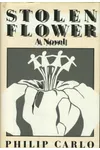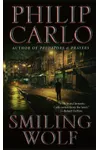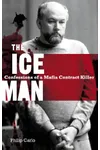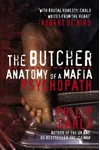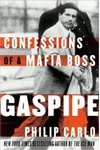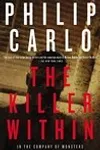Picture a Brooklyn-born storyteller who turned a brush with death into a legacy of chilling true crime tales—meet Philip Carlo! With a knack for diving into the minds of America’s most notorious criminals, Carlo crafted gripping narratives that blend raw authenticity with heart-pounding suspense. His books, like The Ice Man and The Night Stalker, don’t just recount crimes—they pull you into the dark corners of human nature.
Despite battling amyotrophic lateral sclerosis (ALS), Carlo’s passion for storytelling never wavered, making him a true crime legend whose work still captivates readers worldwide. Let’s explore how this fearless writer transformed his gritty roots into literary gold.
The Making of Philip Carlo
Born on April 18, 1949, in Bensonhurst, Brooklyn, Philip Carlo grew up surrounded by the pulse of Mafia culture. As a teenager, he flirted with gang life, even surviving a near-fatal shooting at 16 during a gang war—a .22 caliber bullet to the forehead. While recovering, Carlo discovered the magic of books, devouring works by Steinbeck, Hemingway, and Dickens. These literary giants inspired him to leave the streets behind, trading a potential life of crime for a career in storytelling. By 19, he moved to Manhattan, working as a real estate agent before chasing his dream of becoming a writer.
Philip Carlo’s Unforgettable Stories
Carlo’s true crime books are like a front-row seat to the underworld, blending meticulous research with a streetwise voice that hooks you from page one. His breakout hit, The Ice Man: Confessions of a Mafia Contract Killer (2006), dives into the chilling world of Richard Kuklinski, a hitman who claimed over 200 victims. Carlo spent nearly a year interviewing Kuklinski, capturing his cold detachment in a way that’s both horrifying and fascinating.
Equally gripping is The Night Stalker (1996), a deep dive into the life of serial killer Richard Ramirez, whose reign of terror paralyzed Los Angeles in the 1980s. Carlo’s over 100 hours with Ramirez on death row brought an eerie intimacy to the narrative, earning praise as a “true crime masterpiece.” Other gems include Gaspipe: Confessions of a Mafia Boss (2008), about mobster Anthony Casso, and The Butcher: Anatomy of a Mafia Psychopath (2010), which profiles the brutal Tommy “Karate” Pitera. Carlo’s style—raw, unflinching, and laced with Brooklyn grit—makes every book a journey into the psyche of evil.
His final work, The Killer Within (2011), published posthumously, is a haunting memoir that juxtaposes his battle with ALS against his encounters with killers. Written with the help of his assistant, Kelsey Osgood, it’s a testament to Carlo’s resilience and storytelling prowess.
Why Philip Carlo Matters
Philip Carlo didn’t just write about crime—he humanized the monsters, forcing readers to grapple with the thin line between good and evil. His intimate knowledge of Mafia culture, gained from his Bensonhurst upbringing, gave his work an authenticity that resonated with readers and inspired adaptations, like the film version of The Ice Man starring Mickey Rourke. Carlo’s courage in facing ALS while continuing to write left a legacy of perseverance, showing that even in the face of death, stories can endure.
His books remain must-reads for true crime fans, offering a window into the criminal mind that’s as unsettling as it is compelling. Carlo’s impact lies in his ability to make us question morality, justice, and the darkness within us all.
- Born: April 18, 1949, Brooklyn, NY
- Key Works: The Ice Man, The Night Stalker, Gaspipe, The Butcher
- Died: November 8, 2010, from ALS and cancer
Snag The Ice Man or The Night Stalker and dive into Philip Carlo’s thrilling true crime world—you won’t look at the shadows the same way again!
